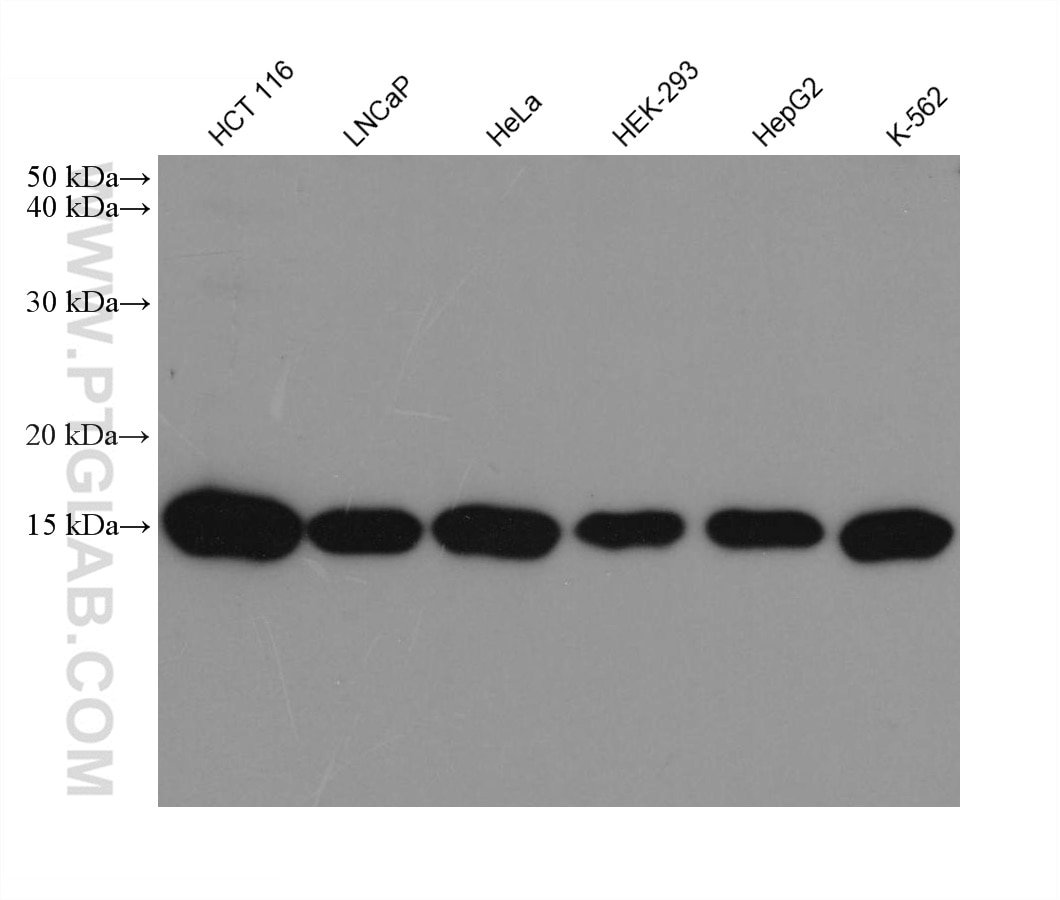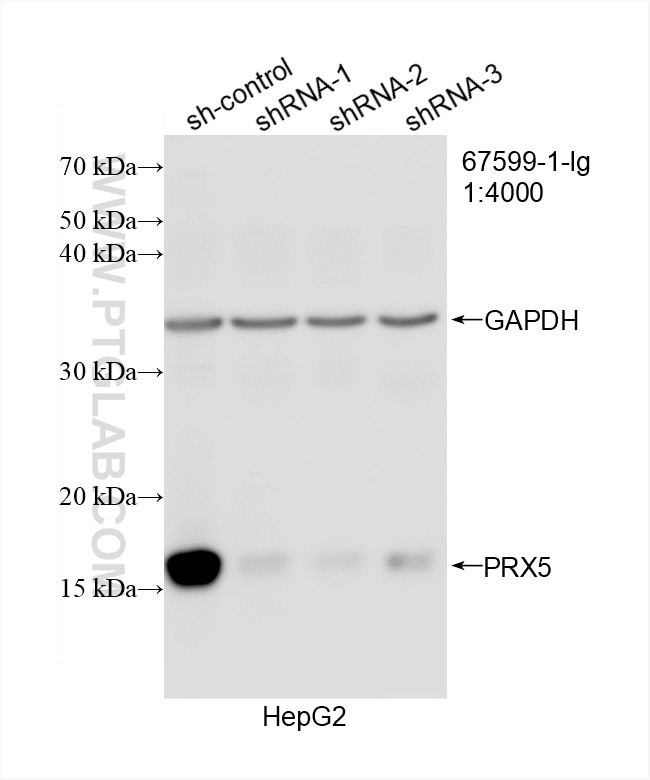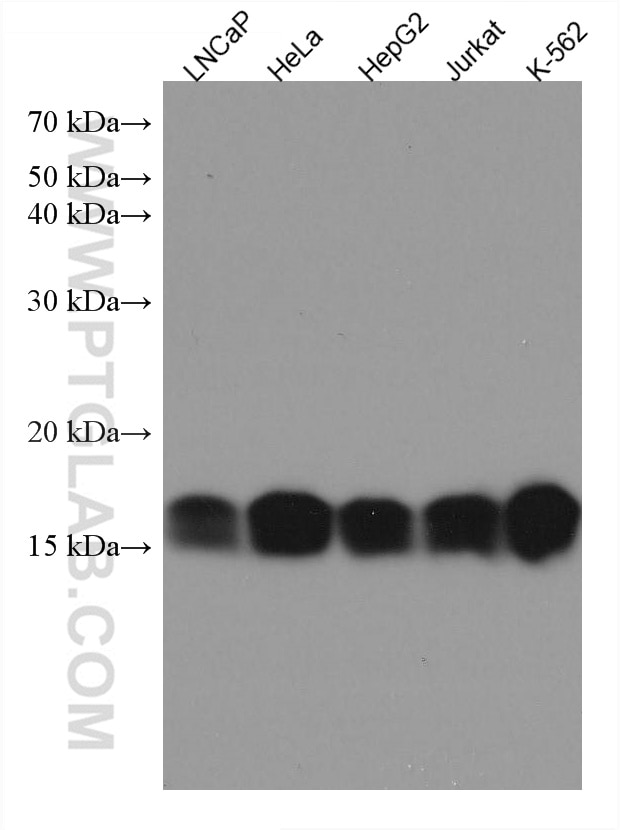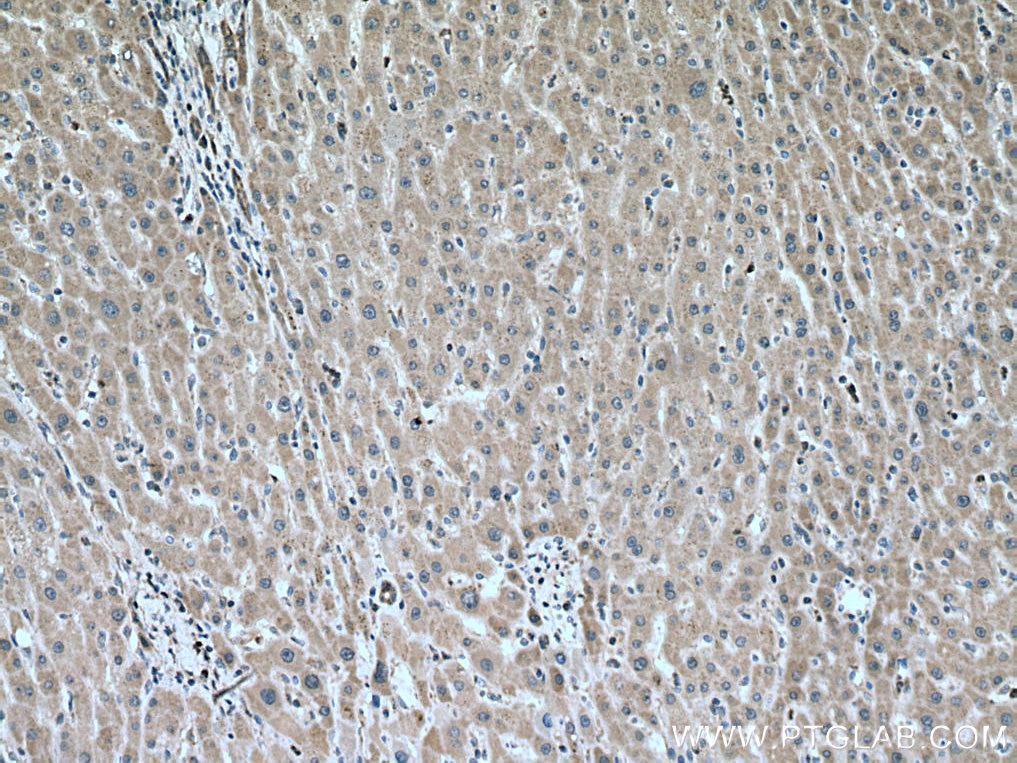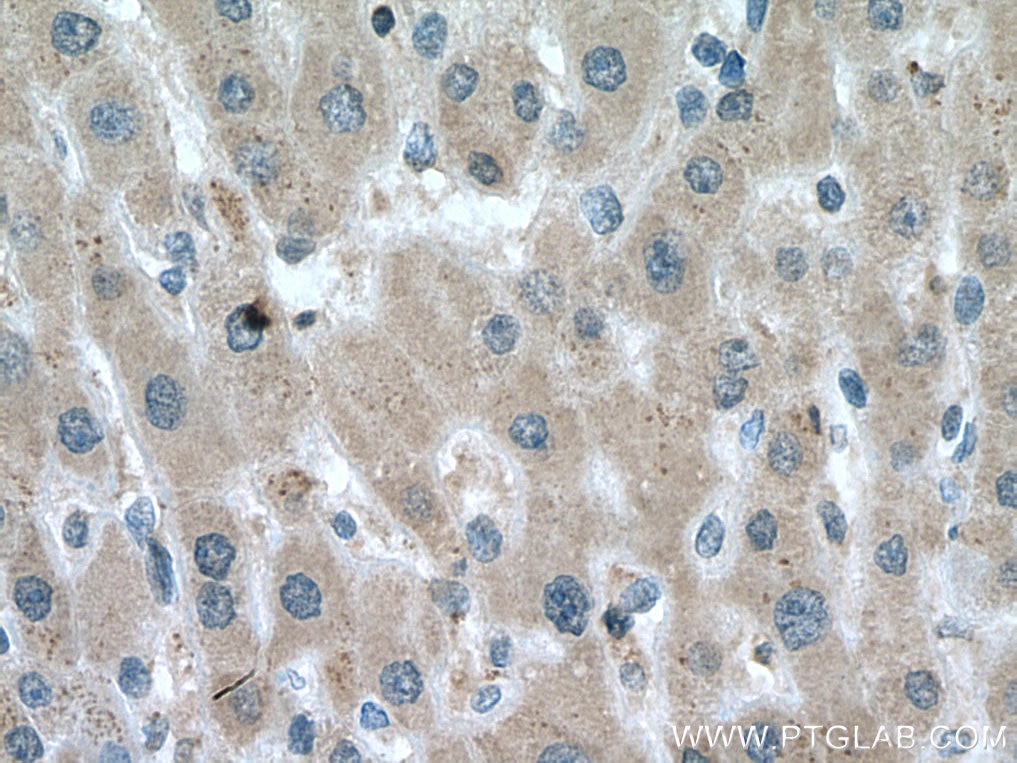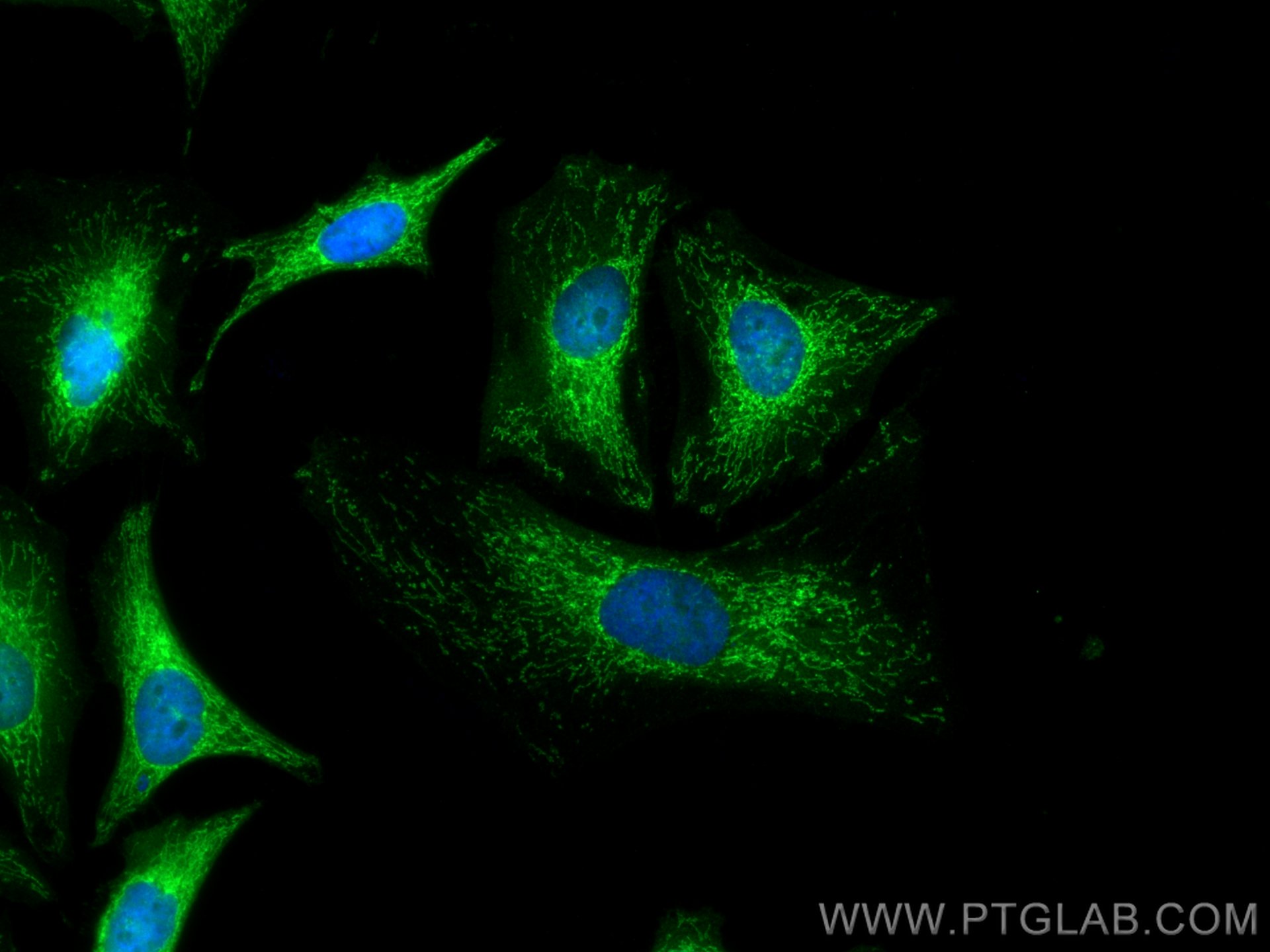- Phare
- Validé par KD/KO
Anticorps Monoclonal anti-PRX5
PRX5 Monoclonal Antibody for WB, IHC, IF/ICC, ELISA
Hôte / Isotype
Mouse / IgG1
Réactivité testée
Humain, rat et plus (1)
Applications
WB, IHC, IF/ICC, IP, ELISA
Conjugaison
Non conjugué
CloneNo.
1B8C5
N° de cat : 67599-1-Ig
Synonymes
Galerie de données de validation
Applications testées
| Résultats positifs en WB | cellules HCT 116, cellules HEK-293, cellules HeLa, cellules HepG2, cellules Jurkat, cellules K-562, cellules LNCaP |
| Résultats positifs en IHC | tissu de cancer du foie humain il est suggéré de démasquer l'antigène avec un tampon de TE buffer pH 9.0; (*) À défaut, 'le démasquage de l'antigène peut être 'effectué avec un tampon citrate pH 6,0. |
| Résultats positifs en IF/ICC | cellules HeLa, |
Dilution recommandée
| Application | Dilution |
|---|---|
| Western Blot (WB) | WB : 1:2000-1:10400 |
| Immunohistochimie (IHC) | IHC : 1:200-1:1000 |
| Immunofluorescence (IF)/ICC | IF/ICC : 1:200-1:800 |
| It is recommended that this reagent should be titrated in each testing system to obtain optimal results. | |
| Sample-dependent, check data in validation data gallery | |
Applications publiées
| WB | See 3 publications below |
| IHC | See 2 publications below |
| IF | See 2 publications below |
| IP | See 1 publications below |
Informations sur le produit
67599-1-Ig cible PRX5 dans les applications de WB, IHC, IF/ICC, IP, ELISA et montre une réactivité avec des échantillons Humain, rat
| Réactivité | Humain, rat |
| Réactivité citée | rat, Humain, souris |
| Hôte / Isotype | Mouse / IgG1 |
| Clonalité | Monoclonal |
| Type | Anticorps |
| Immunogène | PRX5 Protéine recombinante Ag12262 |
| Nom complet | peroxiredoxin 5 |
| Masse moléculaire calculée | 214 aa, 22 kDa |
| Poids moléculaire observé | 17 kDa |
| Numéro d’acquisition GenBank | BC110983 |
| Symbole du gène | PRX5 |
| Identification du gène (NCBI) | 25824 |
| Conjugaison | Non conjugué |
| Forme | Liquide |
| Méthode de purification | Purification par protéine G |
| Tampon de stockage | PBS with 0.02% sodium azide and 50% glycerol |
| Conditions de stockage | Stocker à -20°C. Stable pendant un an après l'expédition. L'aliquotage n'est pas nécessaire pour le stockage à -20oC Les 20ul contiennent 0,1% de BSA. |
Informations générales
Peroxiredoxin 5 (Prx5) is a member of a family consisting of six antioxidant enzymes. Prx5 is ubiquitously expressed in various tissues including mitochondria and peroxisomes, implying that Prx5 functions as a regulator of the cellular oxidation state. Prx5 plays a critical role in protecting cells from oxidative stress by inhibiting the accumulation of reactive oxygen species and cell death. Prx5 has an intensive ROS scavenging activity because it is located in the cytosol and mitochondria. Prx5 expression was upregulated during adipogenesis and Prx5 overexpression suppressed adipogenesis by regulating cytosolic and mitochondrial ROS generation. (PMID: 29777756, PMID: 31505325, PMID: 22020876)
Protocole
| Product Specific Protocols | |
|---|---|
| WB protocol for PRX5 antibody 67599-1-Ig | Download protocol |
| IHC protocol for PRX5 antibody 67599-1-Ig | Download protocol |
| IF protocol for PRX5 antibody 67599-1-Ig | Download protocol |
| Standard Protocols | |
|---|---|
| Click here to view our Standard Protocols |
Publications
| Species | Application | Title |
|---|---|---|
Adv Sci (Weinh) Identification of PRDX5 as A Target for The Treatment of Castration-Resistant Prostate Cancer | ||
Cancer Med Characterization of the Biochemical Recurrence Prediction Ability and Progression Correlation of Peroxiredoxins Family in Prostate Cancer Based on Integrating Single-Cell RNA-Seq and Bulk RNA-Seq Cohorts | ||
Brain Res Bull Peroxiredoxin-5 alleviates early brain injury after subarachnoid hemorrhage by reducing oxidative stress | ||
Int J Biol Macromol Prebiotic stachyose inhibits PRDX5 activity and castration-resistant prostate cancer development | ||
Br J Cancer Elevated serum levels of GPX4, NDUFS4, PRDX5, and TXNRD2 as predictive biomarkers for castration resistance in prostate cancer patients: an exploratory study |
